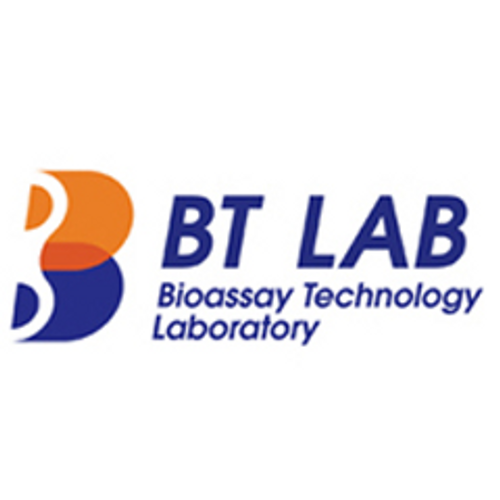Product Description
Rat Thyrotropin-releasing hormone (TRH) ELISA Kit | AE13470RA | Abebio
Species Reactivity: Rat (Rattus norvegicus)
Abbreviation: TRH
Alternative Name: MGC125964; MGC125965;
Application: ELISA
Range: 6.17-500 pg/mL
Sensitivity: 2.43 pg/mL
Intra-Assay: ≤4.2%
Inter-Assay: ≤9.6%
Recovery: 0, 99
Sample Type: Serum, Plasma, Other biological fluids
Detection Method: Sandwich
Analysis Method : Quantitive
Test Principale: This assay employs a two-site sandwich ELISA to quantitate TRH in samples. An antibody specific for TRH has been pre-coated onto a microplate. Standards and samples are pipetted into the wells and anyTRH present is bound by the immobilized antibody. After removing any unbound substances, a biotin-conjugated antibody specific for TRH is added to the wells. After washing, Streptavidin conjugated Horseradish Peroxidase (HRP) is added to the wells. Following a wash to remove any unbound avidin-enzyme reagent, a substrate solution is added to the wells and color develops in proportion to the amount of TRH bound in the initial step. The color development is stopped and the intensity of the color is measured.
Product Overview: Thyrotropin-releasing hormone (TRH) acts as a stimulator of hormone secretion from adenohypophyseal cells, and its signals are inactivated by TRH-degrading ectoenzyme. The deduced 1, 024-amino acid type II integral transmembrane protein is 96% identical to the rat protein. It has 12 putative C-terminal N-glycosylation sites, a potential tyrosine sulfation site (residue 380), a consensus sequence for zinc-dependent metallopeptidases, and a short N-terminal intracellular domain with a potential phosphorylation site. Northern blot analysis revealed expression of 7.5-, 7.0-, 6.0-, and 4.5-kb transcripts. Strongest expression was in brain, with weaker expression in heart, lung, liver, and skeletal muscle, and no expression in kidney and placenta.
Stability: The stability of ELISA kit is determined by the loss rate of activity. The loss rate of this kit is less than 5% within the expiration date under appropriate storage condition. The loss rate was determined by accelerated thermal degradation test. Keep the kit at 37°C for 4 and 7 days, and compare O.D.values of the kit kept at 37°C with that of at recommended temperature. (referring from China Biological Products Standard, which was calculated by the Arrhenius equation. For ELISA kit, 4 days storage at 37°C can be considered as 6 months at 2 - 8°C, which means 7 days at 37°C equaling 12 months at 2 - 8°C) .
 Euro
Euro
 USD
USD
 British Pound
British Pound
 NULL
NULL








